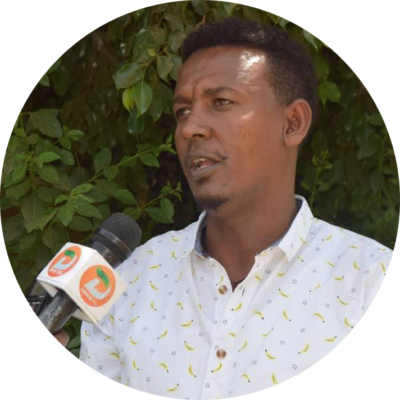On the occasion of the commencement of the scholastic year in Ethiopia, we are happy to share a success story that happened exactly one year ago while schools were closed during the first wave of the COVID-19 pandemic.
Despite the resilience of our girl students and of the Ethiopian education system, COVID-19 is still a concern in the Global South where, as of July 2021, fewer than 2% of people in low-income countries have received at least one dose, as opposed to people in the Global North where more than 50% are fully vaccinated
One of the many barriers to girls’ education that our project in Ethiopia intends to address is that of early marriage for girls, often before the age of 18. During the development of the Supporting the Transition of Adolescent Girls and Enhancing Systems (STAGES) project, early marriage was one of the major challenges identified by a wide range of stakeholders as a barrier to girls’ attendance and learning in school, and as a factor in both drop-out from school and transition from primary to secondary.
When the COVID-19 pandemic began to spread across the globe in March 2020 the STAGES team conducted a Rapid Assessment to find out the status of project girls in their homes, to understand their access to TV/Radio and mobile phone technology as a way of continuing to learn, to know about their well-being, and to provide information on how to stay safe during the pandemic. One of the findings of the assessment was that 72 project girls, many under the age of 18 had been married while schools were closed.
The project team facilitated a visit to the households of the 72 girls immediately by members of Mother Groups connected to the school, joined by Gender Officers from the woreda, Kebele chairpersons/Kebele Education and Training Boards and Mother and Father Groups.
These visits aimed to find out more about the factors that caused the marriage, the girls’ circumstances and well-being, and thoughts on the possibility of returning to school despite being married (and even perhaps pregnant).
The visiting team encouraged the girls and spoke with their new husbands, families and the nearby mother and father group to encourage a return to school to finish their education, arguing for the value of the girl’s education to her family and the community.
This drew on successful women in their community and telling girls how the women lead their families to better situations and contribute to the community. The Gender Officers—who are responsible for gender mainstreaming and technical support to the government offices— even narrated their life story to convince the girls of the benefits of education to their personal and professional life. As a result of that, the girls and their husbands agreed that they should return to school.
When schools opened again in October 2020, the Link team worked with woreda partners to check the actual attendance against enrolment figures prior to COVID-19, and found out that 65 of the 72 girls married had, in fact, returned to school. The STAGES project and the woreda experts have organised for the girls to continue regular counselling sessions and follow-up by the School Girls’ Advisory Committees. In addition, based on the information collected, the married girls who were also found to be living in extreme poverty were included among those who receive an additional monthly bursary, which is another service offered through the STAGES project.

